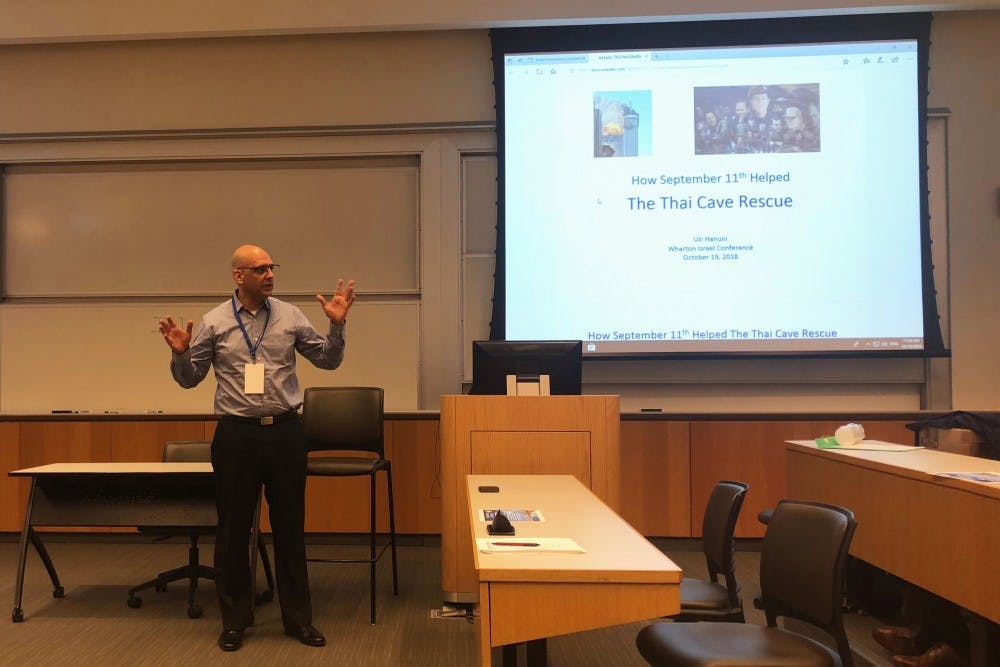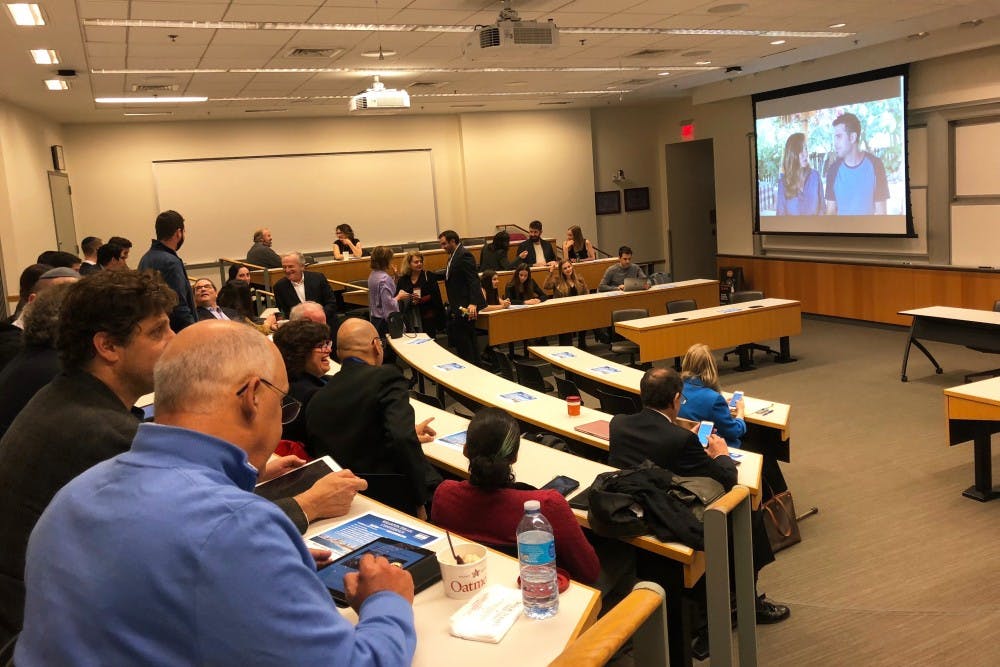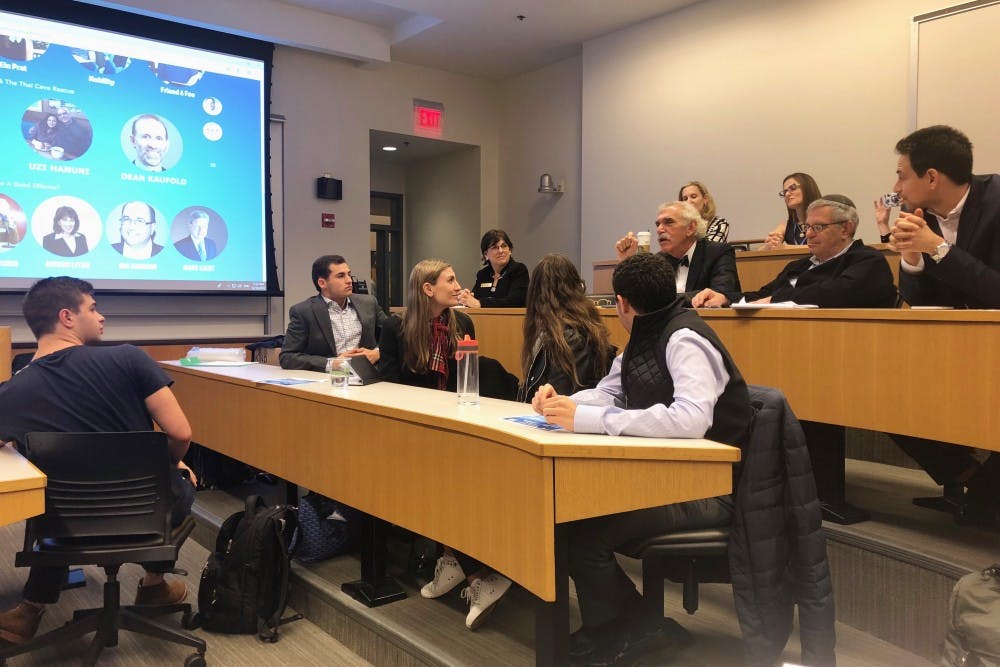
Uzi Hanuni, the company founder and CEO of the Israeli tech company that was involved in the rescue of the lost soccer team in a Thailand cave, spoke at the Wharton Israel Conference this past weekend.
Credit: Simona VigodnerAt the annual Wharton Israel conference last Friday, attendees were given an inside look into the international rescue effort that saved the team of Thai soccer boys stranded in a cave this summer.
The event, supported by student groups Tamid and Wharton Israel, was held in Huntsman Hall. It featured several international and American speakers who exposed attendees to Israeli business practices and addressed the theme of innovating to defend the future. Among them was CEO of MaxTech Networks Uzi Hanuni, who talked about how the communications technology designed by his company played a role in extracting the Thai soccer team from a cave in the Chiang Rai province this summer.
The last Wharton Israel Conference was held in 2016. Sigal Spitzer, a College junior and one of the student leaders responsible for organizing the event, said this year’s event "reach[ed] new heights" in terms of the caliber of speakers invited and overall approach. More than 80 people registered for the conference, with attendance intentionally capped to encourage a more interactive experience.
Wharton junior Sam Roth and College sophomore Josh Kratka attended the conference. They agreed that the highlight was the keynote speech given by Hanuni from MaxTech Networks, a company that innovates to allow mobile communication in places where there are no cell phone networks.
Hanuni said he founded MaxTech after the September 11 terrorist attacks because he was shocked that loss of communication had caused 412 first responders to lose their lives.
“Right then, I decided to dedicate my life to solving this problem. I said to myself, ‘In the 21st century, no first responders will lose their lives because of a lack of communication,’” said Hanuni. It took six years to develop the technology, but Hanuni said investors and fellow engineers recognized that “the mission of saving lives is more important than the next billion-dollar company.”

When news first emerged this summer that a Thai soccer team had been stranded inside a cave, officials on the ground reached out to Hanuni to discuss the possibility of selling his technology to aid in the rescue. When he learned about the situation, however, Hanuni said he saw the issue as far more than a business transaction and refused the money, quickly sending engineers and radios to Thailand.
“I am a serial high-tech life-saver. I don’t consider myself an entrepreneur,” he said.
Another highlight of the conference was a sponsored tasting from SoCo, an Israeli company that aims to bring authentic stone-ground tahini to the U.S. Goni Light and Yonatan Sela, the founders of SoCo, spoke about the importance of an Israeli-Palestinian partnership in their business model — the recipe they use in their tahini has been perfected for five generations by a Palestinian family.
“We want to, in a very non-political way, set an example for how Palestinians and Israelis can work together,” Sela said.

Students said they appreciated the range of speakers who were featured at the event.
“It’s great how we are able to gather like-minded thinkers from around the world to relate about their experiences and the Israeli economy and why Israel has become such a startup hub," Roth said.
Kratka agreed. “It was really interesting for me to see where all these figures in the Israeli startup scene derive their passions from."
The Daily Pennsylvanian is an independent, student-run newspaper. Please consider making a donation to support the coverage that shapes the University. Your generosity ensures a future of strong journalism at Penn.
Donate







